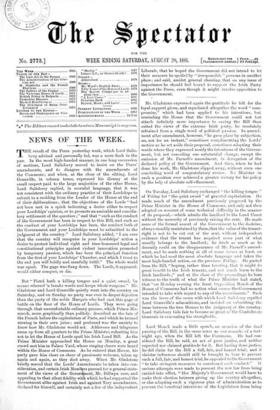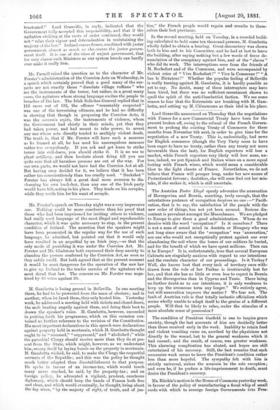Lord Monck made a little speech, on occasion of the
finizd: passing of the Bill, in the same sense as our remarks of a fort- night ago, when the Bill left the Commons. He had con- sidered the Bill, he said, an act of pure justice, and neither expected nor claimed gratitude for it. But having done justice, he did claim for the Bill a full, fair, and honest trial ; and if sinister influences should still be brought to bear to prevent such a full, fair, and honest trial, he appealed to the Government "to take stringent measures to counteract such conduct." If serious attempts were made to prevent the new law from being carried into effect, "Her Majesty's Government would have to make their election between giving up the country altogether, or else adopting such a vigorous plan of administration as to prevent the beneficial intentions of the Legislature from being
frustrated." Lord Granville, in reply, indicated that the Government fully accepted this responsibility, and that if the agitation striking at the roots of order continued, they would not "relax their vigour and determination in maintaining the majesty of the law." Ireland craves firmer, combined with juster government, almost as much as she craves the juster govern- ment itself. It is one of the vices of unjust government, that for very shame such Ministers as our system breeds can hardly ever make it really firm.































 Previous page
Previous page